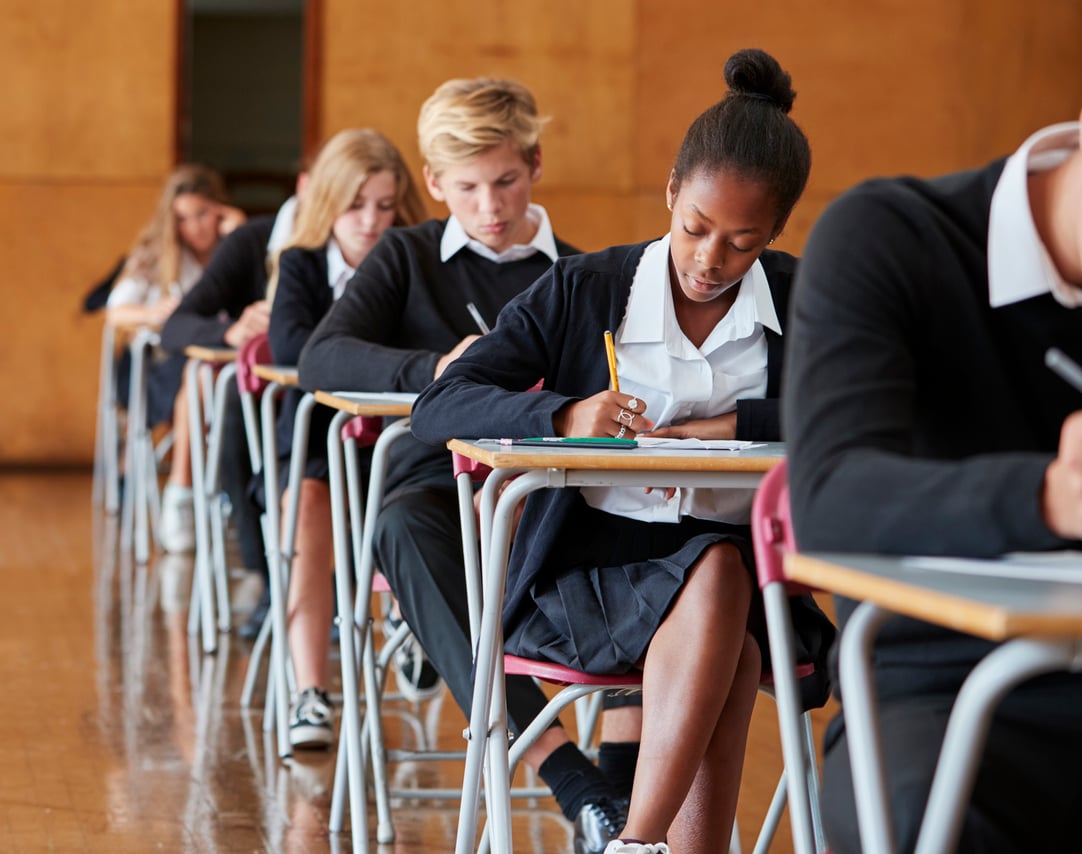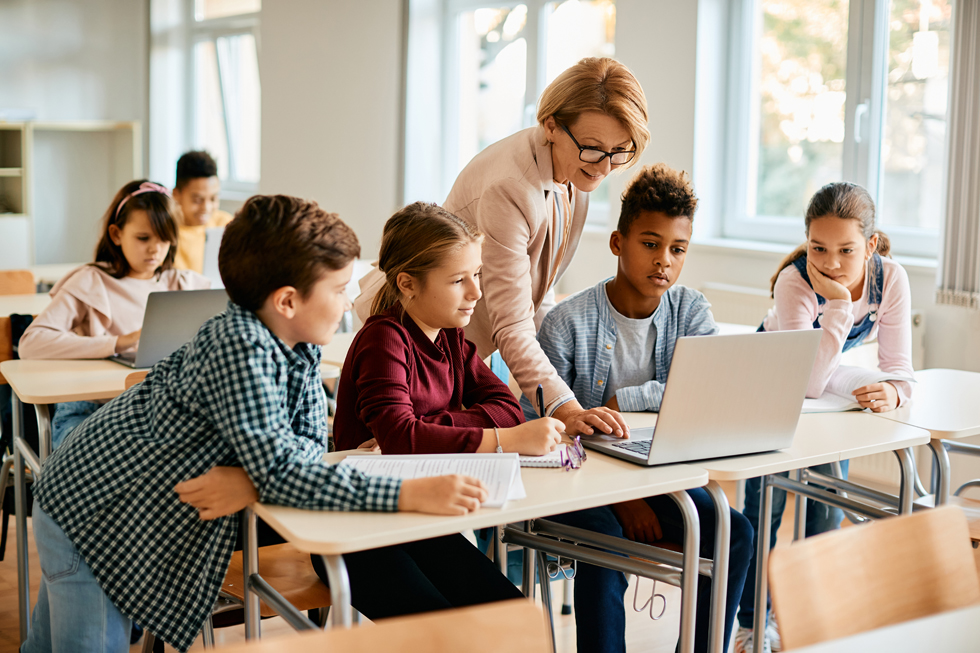Join the Activity to Save Temecula Schools: Community Action Needed!
Wiki Article
Comprehending the Relevance of Institutions in Youngster Development and Community Development
Schools offer as essential institutions for kid growth and community growth, offering environments where scholastic achievements are complemented by the growing of social skills and direct exposure to varied perspectives. These academic setups not just promote critical thinking and reliable interaction but likewise foster empathy with collaborative jobs. In addition, schools' involvement with regional areas via service-learning initiatives reinforces the bond between families and universities. This cooperative partnership highlights the value of institutions in supporting active citizenship and lifelong knowing habits. What are the specific devices by which these establishments attain such profound effects?Academic Achievement
Academic success offers as a foundation of child development, supplying the foundation whereupon future discovering and success are constructed. Institutions play a pivotal function in cultivating this scholastic growth, supplying organized settings where children can get crucial understanding and cognitive abilities. Standard educational program guarantee that trainees gain proficiency in core subjects such as mathematics, scientific research, and language arts, which are important for both college and professional possibilities.In enhancement to giving essential scholastic skills, schools also grow crucial reasoning, analytic capabilities, and intellectual curiosity. These cognitive competencies are important for browsing complex real-world scenarios and adjusting to the ever-evolving needs of the modern work environment. Teachers, as facilitators of learning, use diverse pedagogical techniques to satisfy different learning styles, therefore optimizing individual trainee possibility.
In addition, academic success is closely connected to self-confidence and inspiration. Children who experience scholastic achievements are most likely to develop a favorable self-concept and a long-lasting passion for knowing. Schools also provide different sources, such as collections and modern technology, which further enhance the instructional experience and prepare students for a technologically sophisticated society.
Social Ability Growth
Beyond scholastic achievement, the function of schools in social ability growth is essential. Schools offer as a primary venue for children to discover and practice crucial social abilities such as collaboration, conflict, and interaction resolution. In the structured atmosphere of a classroom, students communicate with peers, instructors, and various other school staff, offering many possibilities to create these critical capabilities.Reliable social ability advancement in schools is helped with with group tasks, joint projects, and extracurricular programs. These communications assist trainees comprehend social standards, build compassion, and foster a sense of community. Team jobs show students just how to function together in the direction of a typical objective, pay attention to different perspectives, and browse arguments constructively.

The farming of social skills throughout school years lays a foundation for future individual and expert connections. Save Temecula Schools. As trainees grow, the ability to efficiently communicate and work together comes to be significantly vital, highlighting the institution's crucial duty in holistic child development
Exposure to Variety
Exposure to diversity in institutions is essential to promoting a comprehensive state of mind and expanding pupils' point of views. Schools function as a microcosm of the wider culture, and experiencing varied societies, languages, and socioeconomic histories within this setting outfits students with vital abilities for navigating an increasingly globalized world. This exposure urges compassion, decreases prejudices, and promotes common respect amongst peers.Varied class additionally boost cognitive and social advancement. Research study indicates that students who communicate with peers from varied backgrounds exhibit much better problem-solving skills and creative thinking. They discover to value various perspectives, which enriches classroom conversations and promotes a more vibrant learning experience. This understanding of variety prepares students for future offices that worth modern skills.

Area Involvement
The benefits of varied classrooms extend beyond the institution walls, promoting a solid feeling of area involvement amongst pupils. By interacting with peers from various cultural, socioeconomic, and ethnic backgrounds, students acquire a wider point of view and an admiration for variety. This read more direct exposure urges them to come to be energetic people that want to contribute favorably to their areas.Institutions that highlight area engagement often integrate service-learning jobs, which allow students to resolve real-world troubles while using scholastic abilities. These projects not only boost pupils' understanding of their coursework but also impart a sense of obligation and empathy. Collaborations in between colleges and regional organizations give pupils with possibilities to participate in area events, further strengthening their duty as aggressive community members - Save Temecula Schools.
Furthermore, adult and community involvement in schools strengthens the bond between instructional organizations and the areas they offer. Through these initiatives, schools play a crucial duty in nurturing area involvement and promoting social growth.
Lifelong Learning Practices
Creating long-lasting discovering routines is necessary for a youngster's continuous development and adaptability in an ever-changing globe. Institutions play a crucial function in instilling these practices by creating an atmosphere that cultivates inquisitiveness, important reasoning, and a love for understanding. With extracurricular tasks and varied educational programs, teachers motivate trainees to check out different topics, evaluate information critically, and apply their learning to real-world circumstances.
Additionally, schools offer an organized environment where children can develop self-discipline and time monitoring skills, both of which are vital for continuous knowing. By emphasizing the value of establishing objectives, reviewing development, and adjusting learn the facts here now methods, universities prepare pupils to navigate the complexities of adult life, guaranteeing they stay long-lasting students and contributors to society.
Conclusion
To conclude, institutions are essential in fostering youngster development and community development by giving environments conducive to academic achievement, social ability advancement, and direct exposure to diversity. Via collaborative tasks and communications, colleges boost crucial thinking, empathy, and interaction abilities. Neighborhood interaction initiatives additionally enhance the bond in between schools and neighborhood areas. Inevitably, institutions cultivate lifelong learning habits, furnishing individuals with the required knowledge and abilities to add positively to culture.In the organized environment of a class, students connect with peers, teachers, and various other school personnel, supplying various possibilities to develop these important abilities.
In essence, direct exposure to diversity within institutions not just enriches private pupils but additionally strengthens the social material of the area as a whole.
The benefits of diverse class expand beyond the institution wall surfaces, cultivating a strong sense of area involvement among trainees.Colleges that stress community visite site interaction usually incorporate service-learning projects, which enable trainees to attend to real-world troubles while applying academic skills. Collaborations in between colleges and local organizations supply pupils with possibilities to take part in area occasions, further strengthening their duty as aggressive area members.
Report this wiki page